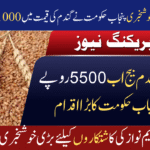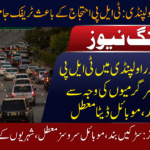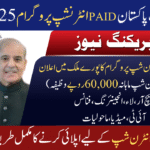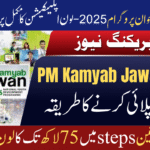LHC Bench Reinstates Naswar
The Lahore High Court (Multan bench) recently delivered a landmark ruling that lifts the multi-year ban on the sale, purchase, and manufacture of Naswar in Punjab. The decision ends restrictions imposed earlier by the Punjab Food Authority (PFA), restoring legal status to the snuff-like tobacco product, following a petition that had been pending for years.
What Was the Ban & Why It Was Contested
- Some years ago, the Punjab Food Authority declared Naswar harmful to health and issued a notification banning its production, sale, and purchase.
- A Writ Petition No. 4177/18 was filed challenging this ban; petitioner Zeeshan Khan Khattak (represented by counsel Zulfiqar Ali Sidhu) argued that the ban violated certain legal and constitutional rights.
- The case had been dragging on for about seven years. During that time, a stay order had been in place (i.e. the ban wasn’t being fully enforced while the legal question was under review).
What the Lahore High Court Ruled
- The Multan bench, presided over by Justice Syed Ahsan Raza Kazmi, formally removed the ban, declaring that the production, sale, and purchase of Naswar can resume legally.
- The PFA had expressed its intention during the hearing to withdraw the notification that enforced the ban. With that, the Court found no legal basis for continuing the ban.
- From now on, Naswar becomes a legal good in Punjab, with individuals and businesses free to manufacture, distribute, and purchase it under whatever laws and regulations apply.
Implications & Reactions
- Manufacturers & Traders: Those involved in the Naswar industry are relieved; factories and shops that shut down or reduced activity can resume operations.
- Regulatory Bodies: The Punjab Food Authority no longer has enforcement powers for the ban; regulatory framework may now shift toward inspection or oversight rather than prohibition.
- Public Health Debate: The decision revives concerns among health advocates who say Naswar is linked with oral cancers, gum disease, and other health risks. There will likely be renewed pressure for regulation, warnings, packaging mandates, or taxation.
- Legal Precedent: This ruling may influence similar cases regarding bans or prohibitions on products considered harmful but culturally entrenched.
What You Should Know Moving Forward
Here are practical points for citizens now that the ban is lifted:
- If you’re a Naswar user, you can buy from legal shops without fear of penalties.
- Traders should ensure they comply with any licensing, health, or local business regulations for selling tobacco products (Naswar is considered a tobacco product in many contexts).
- Authorities may impose labeling, health warnings, or regulation similar to other tobacco products—watch for these changes.
- Public health organizations may increase awareness campaigns about the risks associated with Naswar.
Quick Detail Table
| Aspect | Before Ruling | After Ruling |
|---|---|---|
| Legal Status | Sale/purchase/manufacture banned in Punjab under PFA notification | Ban lifted; Naswar is legal again under applicable regulations |
| Case | Writ Petition No. 4177/18 against PFA’s ban functioning as harmful | Petition succeeded; PFA agreed to withdraw the notification |
| Court | LHC Multan Bench | LHC Multan Bench (Justice Syed Ahsan Raza Kazmi) |
| Effect on Businesses | Shops closed or stopped sales; manufacturers stopped operations | Businesses can resume production & trade; legal protection restored |
| Health Regulations Risk | No product oversight under ban | Possible regulation or oversight may be applied |
Questions & Things to Watch
- Will there be regulations on labeling, warnings, or packaging for Naswar now that it’s legal again?
- How will local governments tax or license its manufacture and sale?
- Will there be any limits or restrictions (age, sales location, etc.) imposed to address health risks?
- How will this affect public health strategies, especially anti-tobacco campaigns?
Final Thoughts
The Lahore High Court’s bench decision to lift the ban on Naswar marks a significant turn in how regulatory policy, public health, culture, and legal rights intersect in Pakistan. For people in trade and users, it restores previously restricted rights. For health advocates, it poses new challenges and responsibilities about informing consumers and regulating risks.
This case shows how legal decisions can reshape everyday business and consumption practices. As things settle, keeping an eye on regulatory changes, public response, and court follow-ups will be important for anyone personally or professionally affected.









